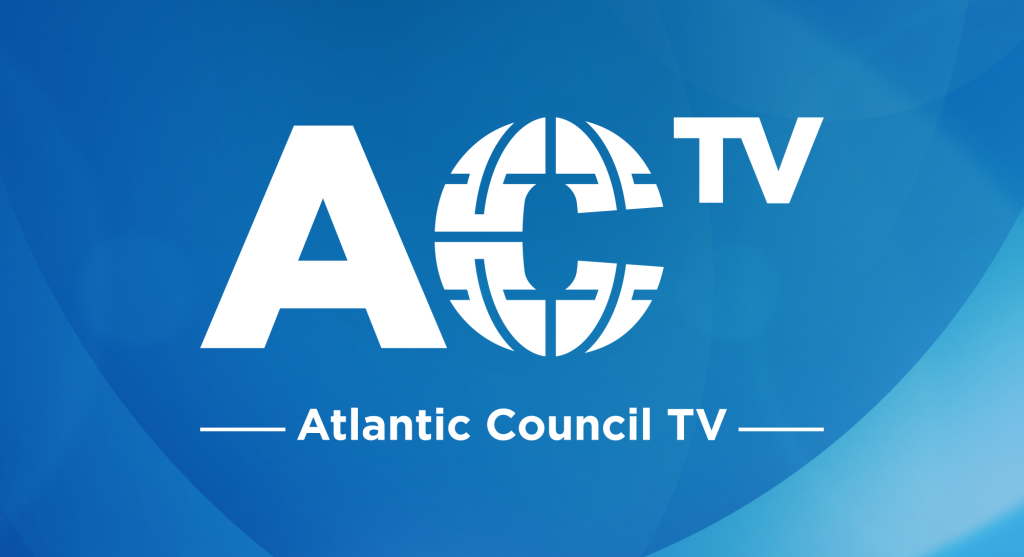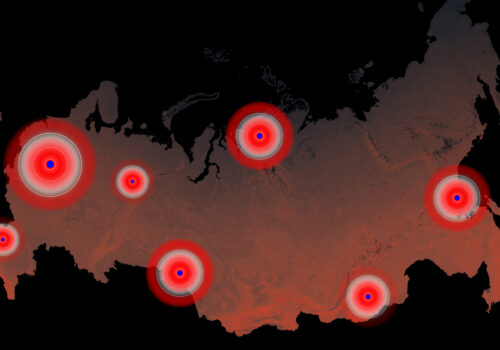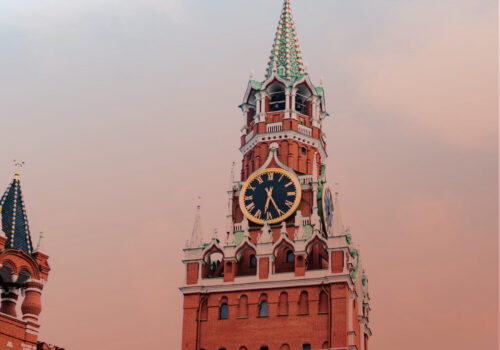
Russia’s full-scale invasion of Ukraine in February 2022 challenged much of the common Western understanding of Russia. How can the world better understand Russia? What are the steps forward for Western policy? The Eurasia Center’s new “Russia Tomorrow” series seeks to reevaluate conceptions of Russia today and better prepare for its future tomorrow.
Russian President Vladimir Putin’s war on Ukraine has brought unprecedented destruction to Ukraine and cemented Russia’s role as a revanchist and imperial actor on the international stage. To this end, the Kremlin has sought to mobilize the Russian public into the war effort both through a wide-ranging domestic and international propaganda campaign and through brutal crackdowns on anti-war dissent inside its borders. Facing growing sanctions and international ostracization, many Russians remaining in Russia nevertheless continue to tolerate—if not openly support—Putin and his government.
The latest report in the Atlantic Council’s Russia Tomorrow series, The reluctant consensus: War and Russia’s public opinion, by author Maria Snegovaya, assesses Russian society’s consolidation around Russia’s war on Ukraine, the origin of the “Putin consensus” among the Russian public, and public perceptions of the war among Russians.
Throughout the paper, Snegovaya explores the demographics among those in Russia supporting Putin’s war on Ukraine and the generational trends of the Russian public’s media consumption and attitudes towards pro-Kremlin narratives. Snegovaya also discusses the viability of Russian polling and addresses frequently raised concerns about contemporary polling data in Russia.
What impact has Russia’s war on Ukraine had on Russian public perception of Putin and Russian government institutions? How do different demographic groups in Russia differ in their support and enthusiasm for Putin’s war on Ukraine? What can pro-democracy groups and organizations do to encourage Russians to challenge Kremlin revanchist propaganda and the pro-war status quo?
In conversation with
Sam Greene (VIRTUAL)
Director, Democratic Resilience
Center for European Policy Analysis
Henry Hale
Professor of Political Science and International Affairs
George Washington University
Maria Snegovaya
Senior Fellow, Europe, Russia, and Eurasia Program
Center for Strategic and International Studies;
Adjunct Professor
Georgetown University
Brian Whitmore
Nonresident Senior Fellow, Eurasia Center
Atlantic Council;
Assistant Professor of Practice
University of Texas-Arlington
Moderated by
Related resources
Presented by

The Eurasia Center’s mission is to promote policies that strengthen stability, democratic values, and prosperity in Eurasia, from Eastern Europe in the West to the Caucasus, Russia, and Central Asia in the East.
Atlantic Council TV

Watch this event and more content on ACTV
Follow the conversations shaping our world. Available on all major platforms.



